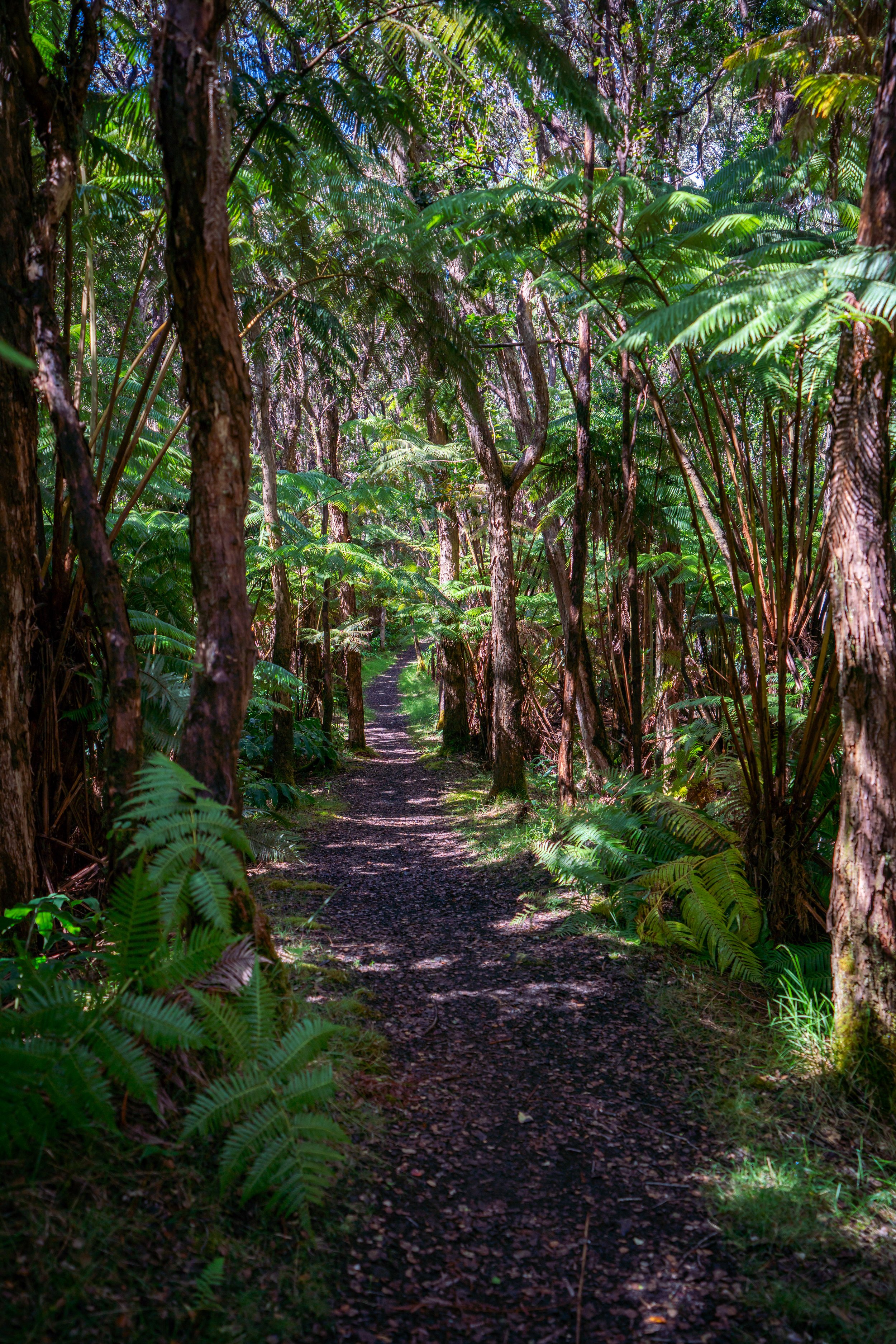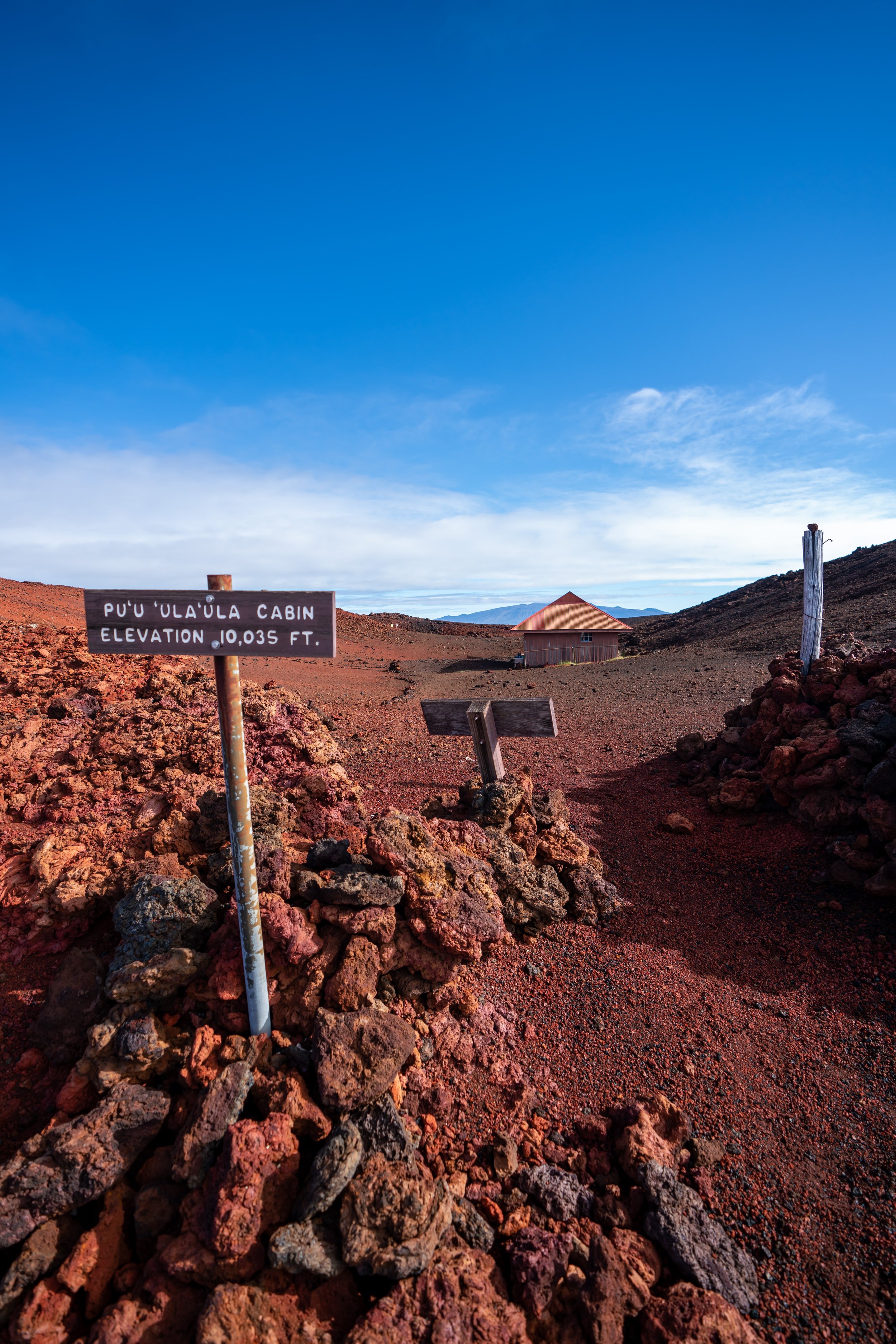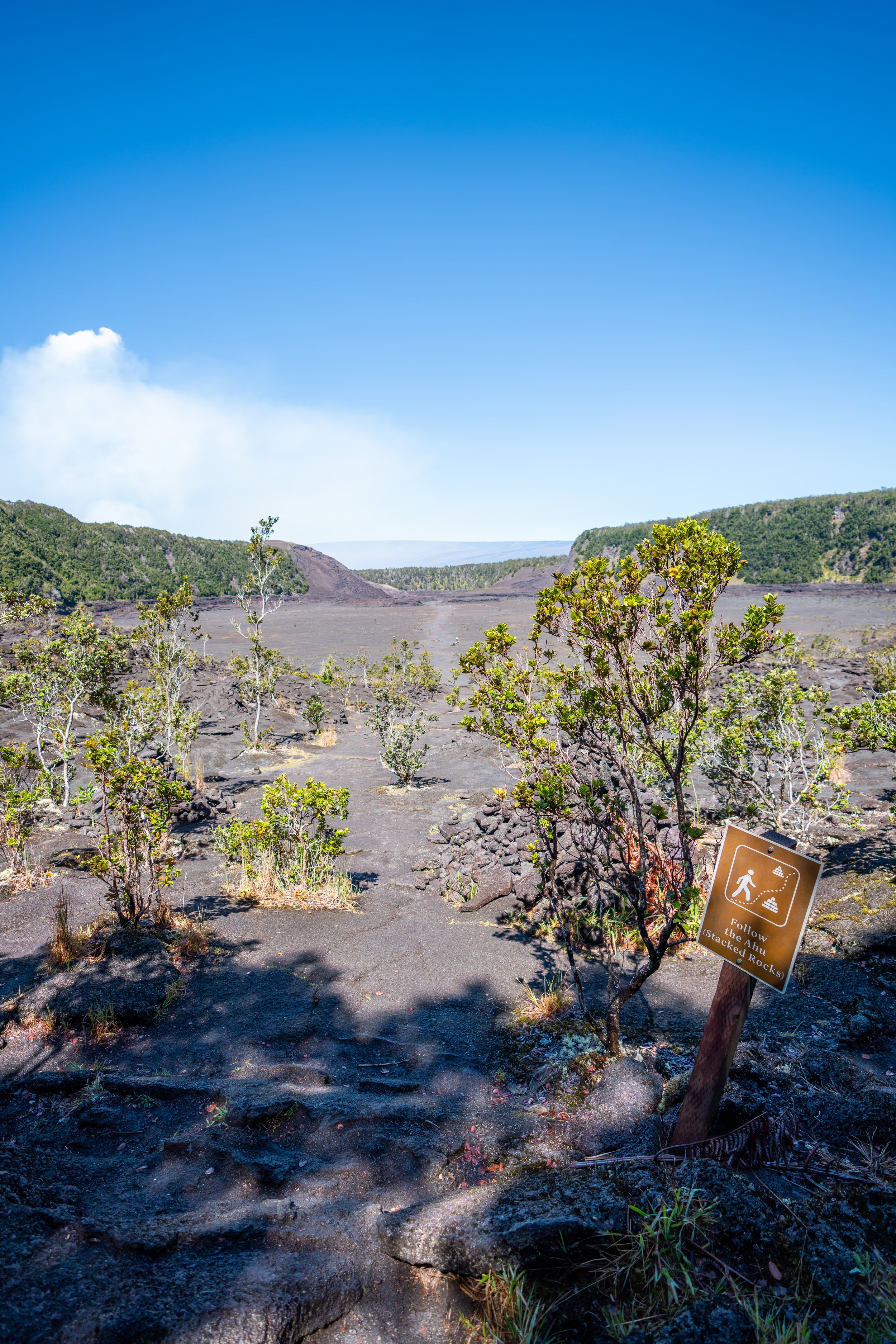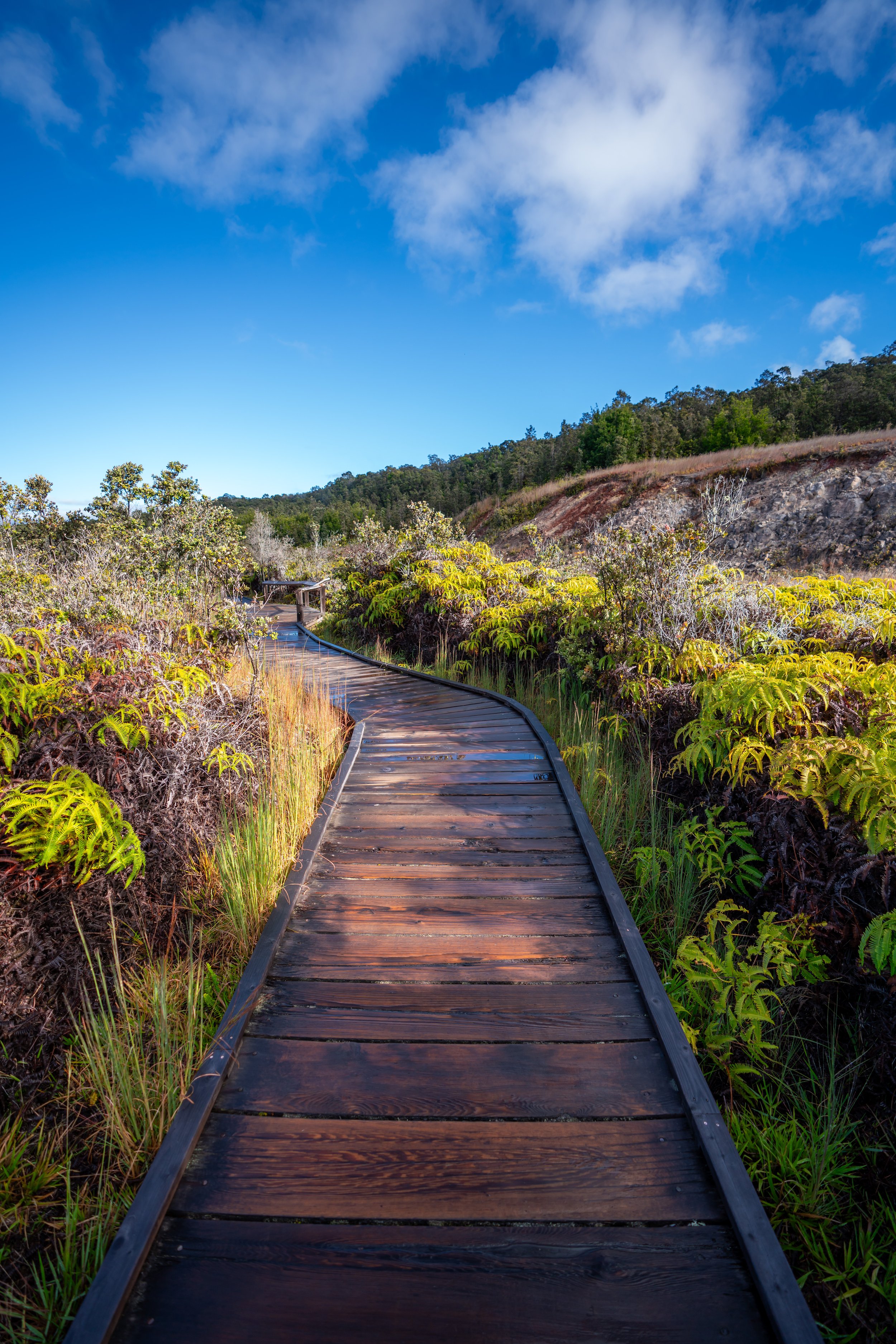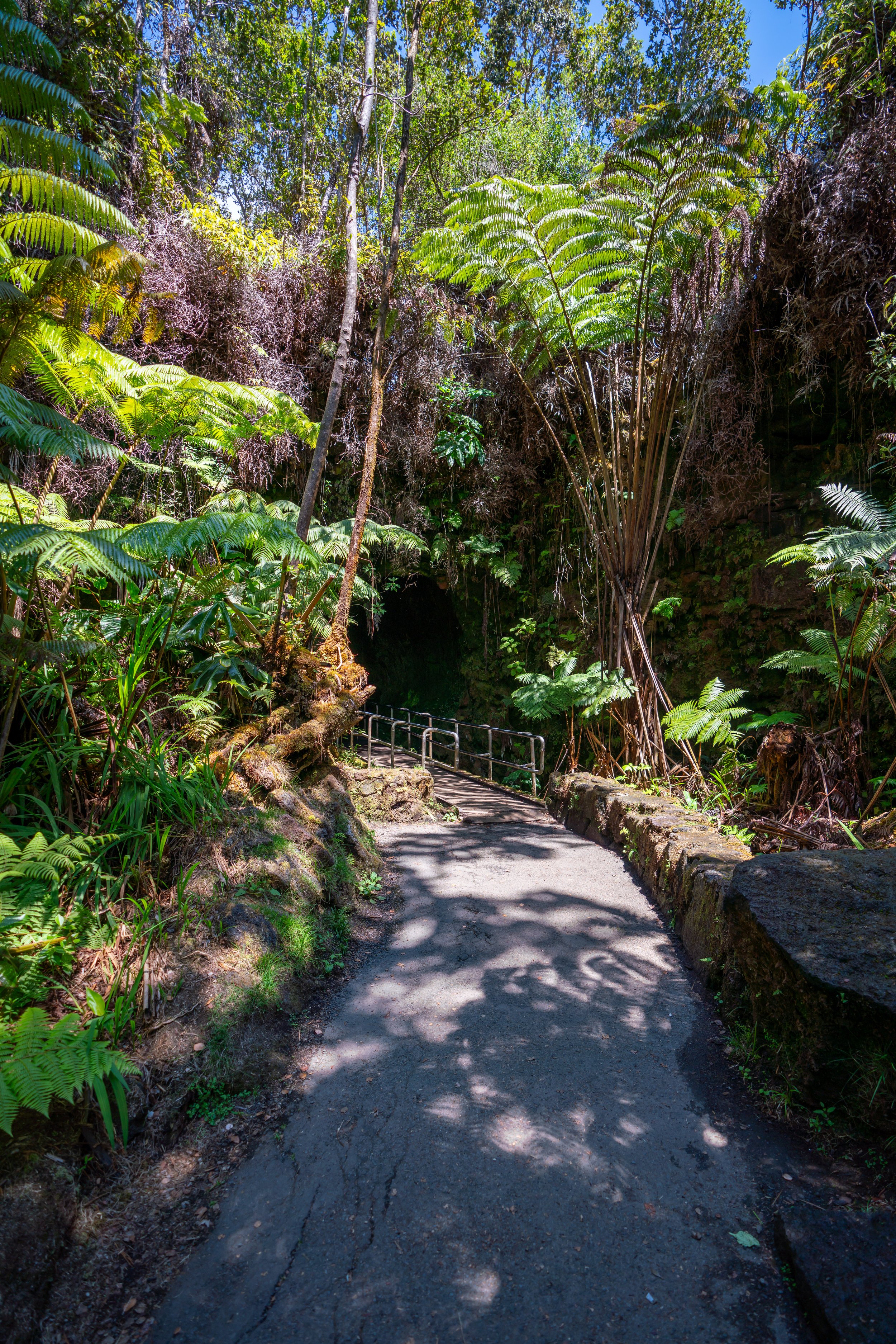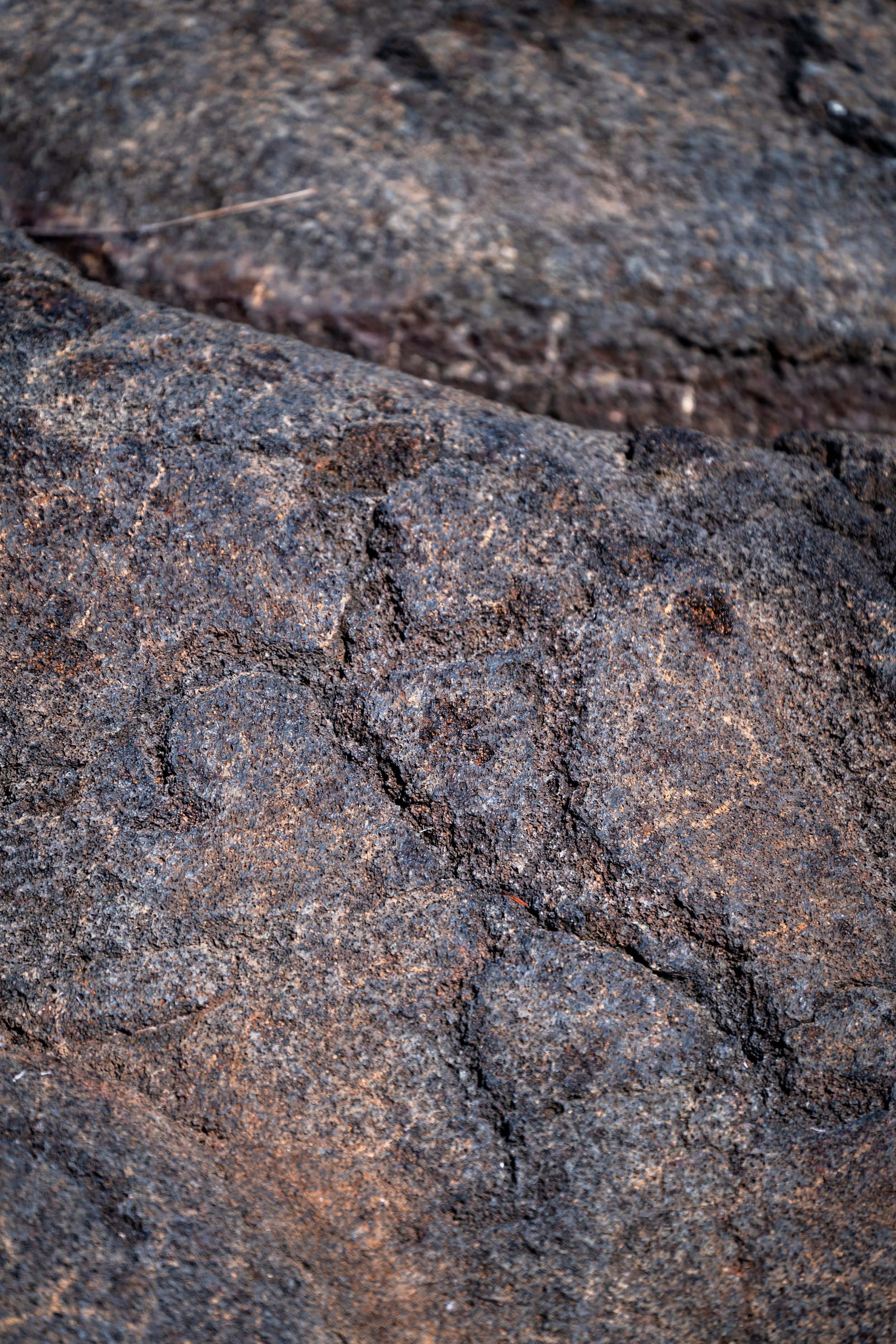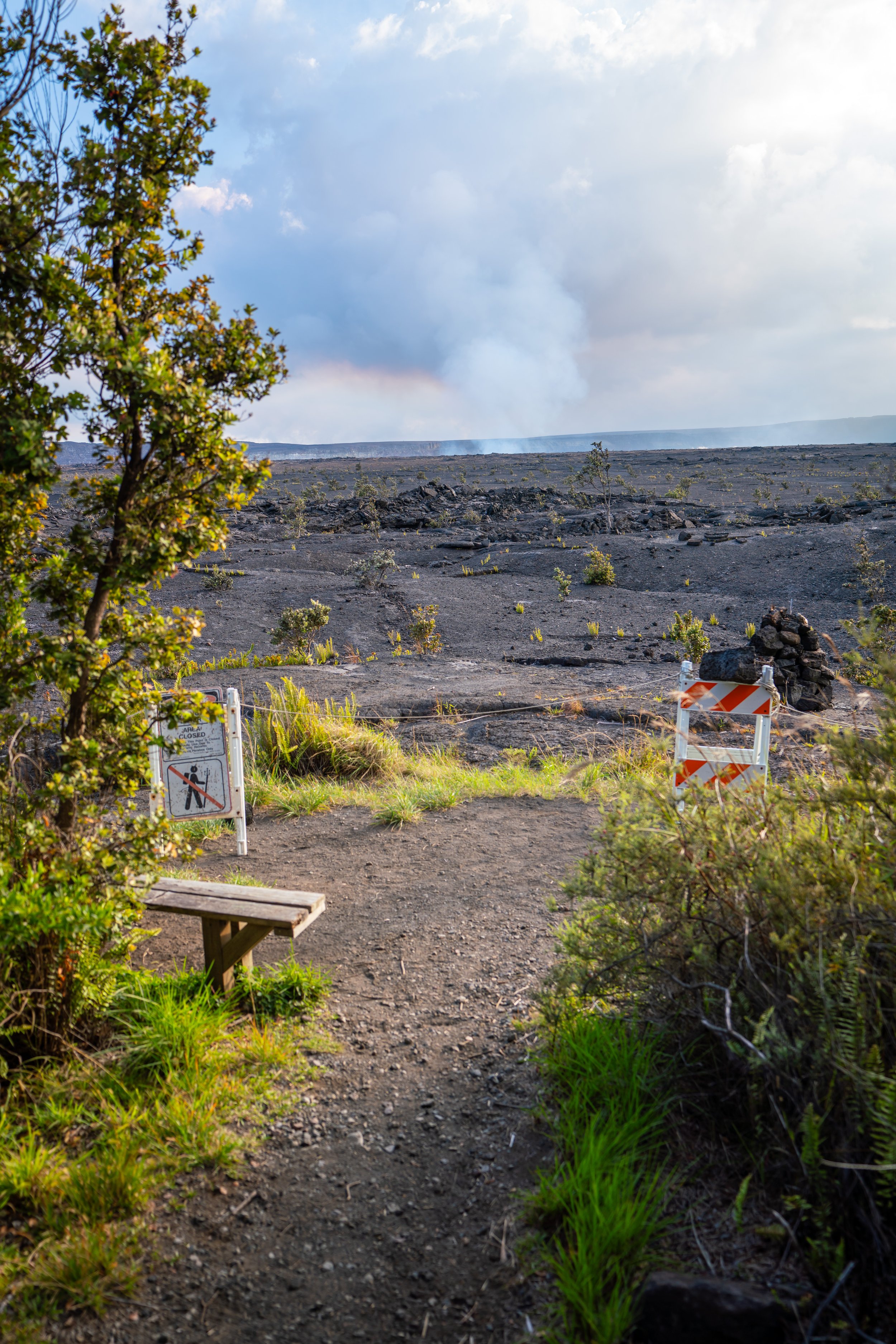Hiking the Kīpuka Puaulu Trail in Hawaiʻi Volcanoes National Park
Distance: 1.2 miles / 1.9 km
The Kīpuka Puaulu Trail, also known as the Kīpukapuaulu Trail, at the base of Mauna Loa in Hawaiʻi Volcanoes National Park is a bit of a different adventure from those near the Kīlauea Caldera, like the Nāhuku Lava Tube and Crater Rim Trail, as Kīpukapuaulu is not one for its breathtaking views.
Rather, the relatively short 1.2-mile (1.9 km) loop is a one-of-a-kind day hike in Hawaiʻi Volcanoes, where visitors can experience a true Hawaiian Kīpuka and learn about what makes them so special!
What is a Hawaiian Kīpuka?
In Hawaiian natural history, a Kīpuka is an area of land that has been surrounded by one or more younger lava flows. This gives the isolated species within the uniqueness of being cut off from the surrounding environment, which can facilitate further speciation over time.
Today, Kīpukas in Hawaiʻi are typically rich with endemic biodiversity, which is what makes hiking through Kīpuka Puaulu so different from other areas of the park—not to mention that many of the species within can’t be found outside of the Hawaiian Islands! Therefore, I encourage you to please remain on the trail and do what you can to minimize your impact.
Kīpuka Puaulu Trailhead Parking
Parking for the Kīpuka Puaulu Trail is located directly off of Mauna Loa Road before the windy switchbacks that lead up to the Mauna Loa Lookout.
Typically speaking, Kīpuaka Puaulu is one of the least-visited trails in Hawaiʻi Volcanoes, so finding a parking spot should never be an issue.
Google Maps Directions: Kīpuka Puaulu Trailhead
Hiking the Kīpuka Puaulu Trail
Overall, the Kīpuka Puaulu Trail is a relatively easy hike that makes for a great kid-friendly adventure within Hawaiʻi Volcanoes National Park.
I recommend Kīpuka Puaulu at any time of the day, but early morning is easily one of the best times to enjoy this beautiful native Hawaiian forest.
Kīpuka Puaulu Loop Trail
Shortly after beginning the hike, the Kīpuka Puaulu Trail splits into the roughly 1.0-mile (1.6 km) loop through the native forest.
In my opinion, it doesn’t matter which direction you choose to hike, as both directions will gradually gain about 100 ft. (30.5 m) of elevation toward the back of the loop.
I choose to go right around the Kīpuka Puaulu Loop Trail.
I highly encourage you to take it slow to learn about the native plants within the Kīpuka.
Most are endemic to Hawaiʻi, and I can tell you that some, such as Hōlei shown below, are extremely difficult to find on other islands like Oʻahu, where I live.
This Kōpiko species can only be found on Molokai, Maui, and the Island of Hawaiʻi.
It may not be noticeable because the Kīpukapuaulu Trail is so gradual, but this area toward the back of the loop is where the trail starts gradually descending back toward the beginning.
This is a Māmaki tree, or in other words, a Hawaiian tea tree, hanging over the trail.
Today, tea is commonly made from it’s leaves, as Māmaki tea is sold commercially and shipped around the world.
That being said, if you are curious about trying the native Hawaiian Māmaki tea, I kindly ask that you don’t harvest Māmaki from our native forests but, instead, buy from one of the local reputable vendors, such as those listed below.
Pāpala Kēpau, or Birdcatcher Tree, is one of the more common indigenous trees in Hawaiʻi, and it is also native to other places around the world such as New Zealand.
This is where the Kīpuka Puaulu Loop returns back to the beginning.
Overall, Kīpukapuaulu is a very easy walk that doesn’t take much time or energy to enjoy. It’s for this reason that I highly recommend the hike, as it’s one of the easiest and quietest trails to enjoy a truly native Hawaiian forest.
Native Plants on the Kīpuka Puaulu Trail
As mentioned previously, the Kīpuka Puaulu Trail is one of the best trails in Hawaiʻi Volcanoes National Park to learn about native Hawaiian plants.
I highly encourage you to take it slow, as there are a number of small placards to give a little more information about the species along the trail.
Other than the native plants mentioned above, you can also expect to see Koa, Pilo, ʻAlaʻala wai nui, and Pāpala Kēpau to name a few.
If you would like to learn more about these and other native Hawaiian plants from across the islands, I encourage you to check out my separate post. It’s a collection of all the native plants I’ve come across from around the Hawaiian Islands.
Read My Separate Post: Native Hawaiian Plant Guide



